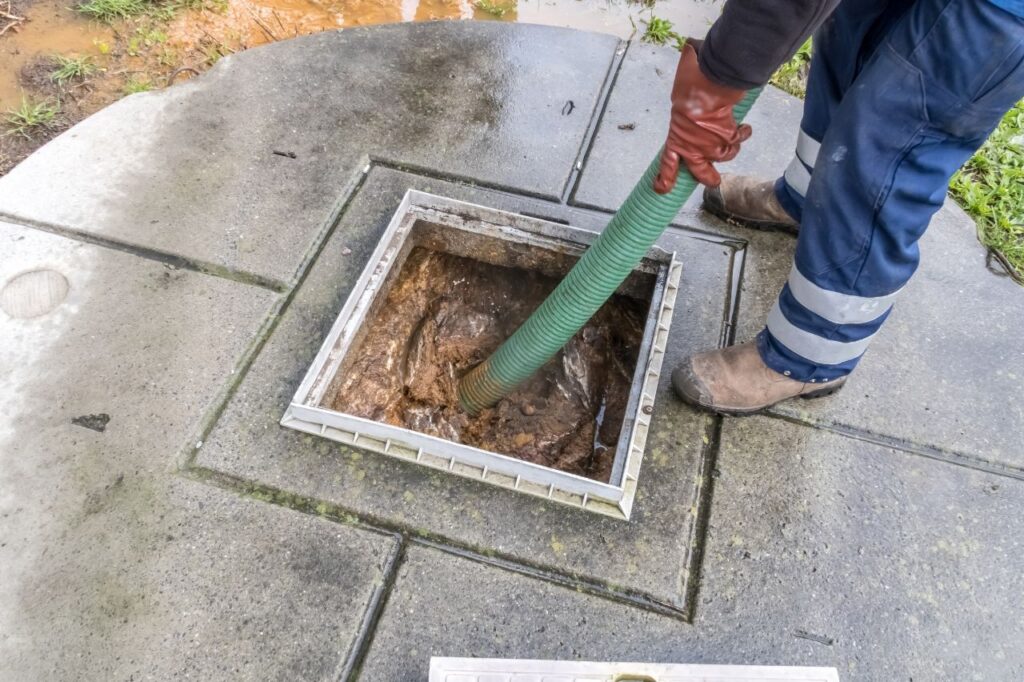If you’re a homeowner or a property owner, you may have heard of cesspools. But what exactly are they, and how do they work? Whether you’re a first-time homeowner or just looking to learn more about your property’s septic system, this beginner’s guide has got you covered. In this article, we’ll take a deep dive into everything you need to know about cesspools, from their history and construction to their maintenance and repair.
We’ll explore the differences between cesspools and septic systems, the pros and cons of using a cesspool, and the potential environmental impact of these underground structures. With this comprehensive guide, you’ll gain a better understanding of cesspools and be well-equipped to make informed decisions regarding your property’s sewage system. So, let’s get started and discover everything you need to know about cesspools.
Table of Contents
ToggleWhat is a cesspool and how does it work?
A cesspool is a large underground tank that collects and stores sewage and wastewater. It is a simple and cost-effective solution for managing sewage in areas where there is no access to a public sewer system. Cesspools are typically made of concrete, brick, or other durable materials and are designed to hold large volumes of sewage and wastewater.
Cesspools work by allowing the wastewater to settle and separate into layers. The solids settle at the bottom of the tank, while the liquid effluent rises to the top. Over time, the solids break down and decompose, while the liquid effluent is absorbed into the soil through a drainage field or leach field.
Cesspools are a common alternative to septic systems and are often used in rural or remote areas where public sewer systems are not available.
Types of cesspools
There are two main types of cesspools: traditional cesspools and modern cesspools. Traditional cesspools are made of brick or stone and are lined with cement. They are typically used in older homes and are not as common today due to their high risk of failure.
Modern cesspools, on the other hand, are made of concrete and are designed to be more durable and long-lasting. They have a larger capacity and are more efficient at managing sewage and wastewater.

Signs of a failing cesspool
Cesspools are designed to last for many years, but they do require regular maintenance to ensure they are functioning properly. Some common signs of a failing cesspool include slow draining sinks, toilets, and showers, foul odors, and sewage backups. If you notice any of these signs, it’s important to have your cesspool inspected and repaired as soon as possible to prevent further damage.
Maintenance of cesspools
Proper maintenance is essential for keeping your cesspool in good working condition. Regular pumping is necessary to remove the solid waste that accumulates at the bottom of the tank. It’s recommended that you have your cesspool pumped every 3-5 years, depending on usage.
In addition to pumping, it’s important to avoid flushing non-biodegradable items down your drains, such as paper towels, feminine hygiene products, and other materials that can clog your cesspool. You should also avoid using harsh chemicals and cleaners that can damage the cesspool’s delicate ecosystem.
The importance of pumping your cesspool
Regular pumping is essential for maintaining the health and longevity of your cesspool. Over time, the solid waste that accumulates at the bottom of the tank can build up and cause blockages in the drainage field. This can lead to sewage backups, foul odors, and other problems.
By having your cesspool pumped regularly, you can prevent these issues and ensure that your cesspool is functioning properly. Pumping also allows you to identify and address any potential problems early on, before they become more serious and expensive to fix.
How to locate your cesspool
Locating your cesspool can be a challenge, especially if you’re not sure where it’s located. The best way to locate your cesspool is to hire a professional cesspool service. They will have the necessary equipment and expertise to locate and inspect your cesspool.
If you’re determined to locate your cesspool yourself, you can start by looking for any visible signs, such as a manhole cover or a vent pipe. You can also try using a metal detector to locate any metal components of the cesspool.
Upgrading from a cesspool to a septic system
If you’re considering upgrading from a cesspool to a septic system, there are several factors to consider. Septic systems are more expensive to install and maintain than cesspools, but they have several advantages over cesspools.
Septic systems are more efficient at treating sewage and wastewater, and they are less likely to cause environmental damage. They also have a longer lifespan than cesspools, which can save you money in the long run.
Cesspool regulations and permits
Cesspools are regulated by state and local authorities, and you may be required to obtain a permit before installing a cesspool. The regulations vary depending on where you live, so it’s important to check with your local authorities before installing a cesspool.
In some areas, there may be restrictions on the use of cesspools, and you may be required to upgrade to a septic system or connect to a public sewer system.
Hiring a professional cesspool service
Maintaining and repairing a cesspool can be a complex and challenging process, which is why it’s important to hire a professional cesspool service. They will have the necessary equipment and expertise to inspect, repair, and maintain your cesspool.
When choosing a cesspool service, it’s important to look for a company with a proven track record of success and a commitment to customer satisfaction. You should also check for licensing and insurance to ensure that the company is qualified and reputable.
Conclusion
Cesspools are a cost-effective and efficient solution for managing sewage and wastewater in areas where public sewer systems are not available. By understanding how cesspools work, the signs of a failing cesspool, and the importance of regular maintenance, you can ensure that your property’s sewage system is functioning properly.
If you’re considering installing a cesspool or upgrading to a septic system, it’s important to research your options and consult with a professional cesspool service to ensure that you’re making an informed decision. With proper maintenance and care, your cesspool can provide reliable and efficient sewage management for many years to come.

